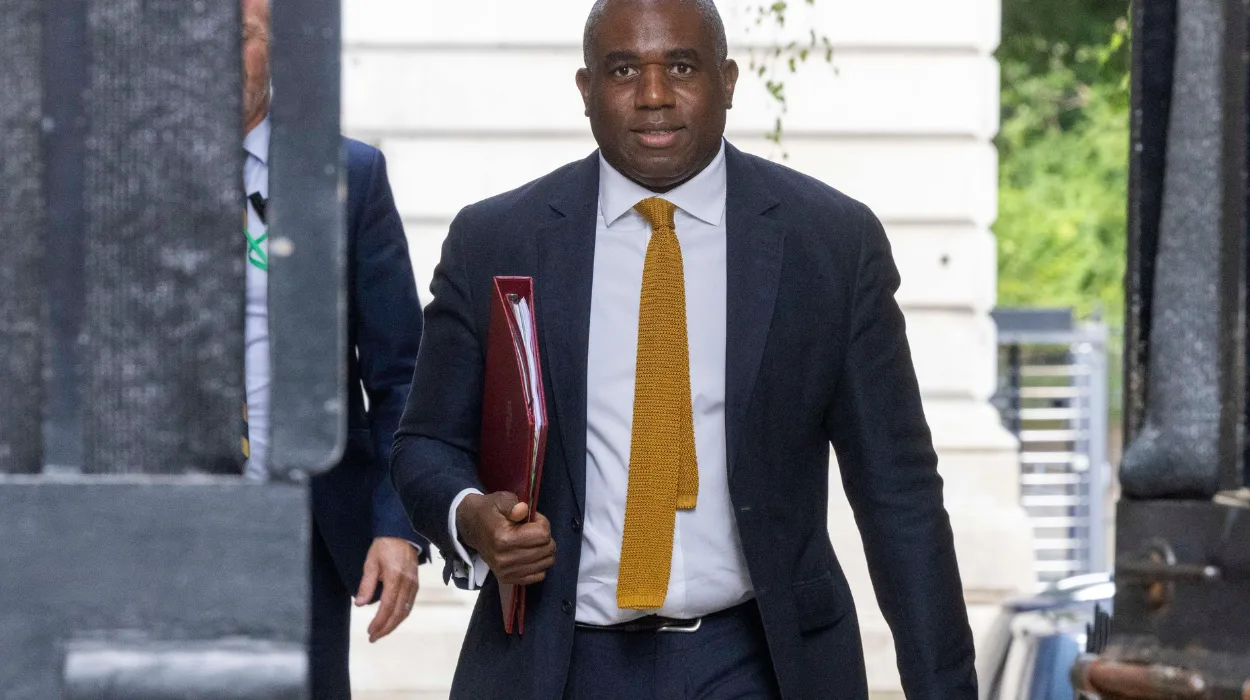UK (Parliament Politics Magazine) – David Lammy condemned Israel’s actions in Gaza as “sickening” and warned the UK may impose new sanctions if the humanitarian crisis worsens.
As reported by The Guardian, UK Foreign Secretary David Lammy condemned Israel for the “grotesque” targeting of Palestinians searching for food, calling the incidents “appalling” and “sickening.” He warned that Britain could impose further sanctions if the fighting continues.
What did David Lammy say about UK arms and Gaza?
During an interview on the BBC, David Lammy said the UK was “deeply regretful” it lacked the power to end the Gaza conflict. He denied British arms or RAF surveillance were aiding Israeli military operations.
When questioned about the 300 active licences, he said,
“We have suspended arms exports that could be deployed in Gaza. I’m confident that we are not, in any way, breaching international humanitarian law. That’s the serious responsibility I bear as foreign secretary.”
Mr Lammy admitted Britain alone could not bring the conflict to an end, saying,
“I wish we could, but the truth is … we are unable to do that as just the United Kingdom. We have to work in partnership with our allies — that is what we have done. And I’m afraid, if we do not see this war come to an end, there will be more action.”
The foreign secretary said,
“But I stand on my record, and it’s a good record. I believe it’s one that we can hold up, and it’s one that you would find other governments have not done as much as the UK government has done to bring the war to an end, but have we succeeded at this point? We have obviously failed until it succeeds. That is the truth.”
Asked whether British RAF intelligence contributed to Israel’s military campaign, Mr Lammy responded,
“No … We are not assisting, and it would be quite wrong for the British government to assist in the prosecution of this war in Gaza. We are not doing that. I would never do that.”
Mr Lammy expressed deep shock at the footage of hungry Palestinians being shot while searching for food, adding he felt “appalled, sickened.”
He stated,
“These are not words that are usually used by a foreign secretary who is attempting to be diplomatic, but when you see innocent children holding out their hand for food, and you see them shot and killed in the way that we have seen in the last few days, of course Britain must call it out.”
Mr Lammy said,
“We will continue to pressure, we will continue to act, we will continue to urge this Israeli government to listen to 83% of its public who are urging them now to move to a ceasefire so those hostages can come out.”
In response to a question about whether Britain should increase pressure to end the war, he replied,
“Well, we’ve announced a raft of sanctions over the last few months.”
Mr Lammy added,
“There will be more, clearly, and we keep all of those options under consideration if we do not see a change in behaviour and the suffering that we are seeing come to an end.”
93 Palestinians died while waiting for aid
Israel carried out airstrikes and a ground assault on July 21, with Deir al-Balah, a major humanitarian centre, as its primary target.
At least 93 Palestinians were killed while waiting for food. It marked the highest death toll in nearly two years after intensified Israeli military operations over the weekend.
Why has the UK joined 27 nations in condemning Israel’s aid blockade?
Britain and 27 other countries have condemned Israel for stripping Palestinians of their basic human rights and dignity. Leaders from Canada, Australia, and France also urged Israel to lift aid restrictions, saying civilian suffering had reached unprecedented levels.
Amnesty International and other rights groups have urged a total ban on arms exports to Israel, including indirect supplies like F-35 components.
Britain’s sanctions on Israel
- Sanctions on ministers: The UK and allies froze assets and banned travel for two Israeli ministers over inciting violence.
- Settlement & trade actions: UK stopped trade talks and sanctioned violent settlers involved in illegal expansions.
- Arms export issue: UK paused some arms exports but still allowed F-35 jet parts, sparking criticism.
- Global response: UK joined 28 countries in condemning Israel’s actions and called for a ceasefire.


